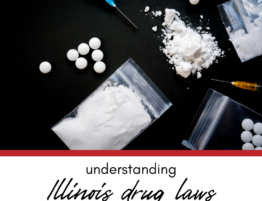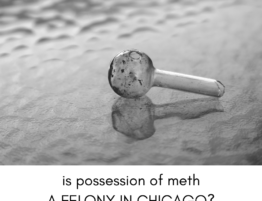
Being charged with drug possession in Illinois is very serious, and if it’s happened to you, you know just how scary the whole experience can be. State law punishes drug possession offenses based on the type and amount of the substance that is possessed, manufactured, or delivered.
That said, what’s the difference between ordinary possession and possession with the intent to deliver?
Drug Possession vs. Possession with the Intent to Deliver
Possession of a controlled substance is a charge that you’re likely to get if you’re caught with a bag of pot that’s intended for personal use. That goes for any drug, for that matter, but know that the penalties vary based on what type of drug you possess.
In order to be convicted of possession, you have to knowingly have the substance in your immediate and exclusive control (either actual or constructive). That means it can be in your pocket, your car, or your home; if it’s yours, you can be convicted.
Possession with the intent to distribute is a charge that you’re likely to get if you’re caught with a large amount of any controlled substance–more than is reasonable for personal use–or if you’re caught with a small amount of a controlled substance that’s packaged for sale.
Possession with the intent to distribute carries a much stiffer punishment than mere possession. The more serious possession with intent to distribute offenses are categorized as Class X felonies that are punishable by a minimum of 6 to 30 years, and a max of 15 to 60 years, depending on the type and amount of the substance.
While both of these are serious offenses (and serious convictions) under Illinois law, your attorney can help ensure that the court hears your side of the story. Whether you’re being charged with drug possession in DuPage County, Cook County or Lake County, make sure you’re working with a lawyer who knows the procedures and who is familiar with your county’s court system.









